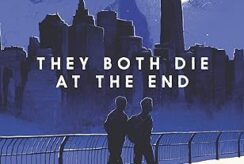By Mary DeLisle
Ordinary Human Failings by Megan Nolan. New York: Little, Brown and Company 2023.
“I’d rather I was never alone, that’s the God’s honest truth. I’ve been afraid to be alone since the day I was born, and it’s all I ever am. You might think the opposite, that we’re all on top of each other in that little flat, but I am always, always, alone. Imagine there was something you couldn’t stand for even a day, and you have to stand it every day, for your whole life?”
Ordinary Human Failings is a tale of a disparaged family struggling to navigate their own lives and limitations. What they are unprepared for is the discovery that their 10-year-old relative not only has a dark side but is also suspected of committing a heinous crime. Megan Nolan highlights the struggles of those who must reconcile past failings and find a place within the world.
The Greens are an Irish family living in England during the 1990s. When 10-year-old Lucy Green is detained pending the investigation of a toddler’s death, the Greens leave their neighborhood to stay in a hotel, where, with some prompting from a local journalist, each family member is forced to confront their pasts in order to understand the present they live in.
The cast of characters; a dispassionate dad, a do-gooder, a drinker, a dreamer, a daughter with a dark side, and a deep-diving reporter. With the exception of one, each character lacks satisfaction in their lives and is perpetually self-centered, focusing on their own misery, rather than sharing their strife and striving for connection with one another.
This intriguing melancholic tale unpacks character backstories and shows that all people face adversity, though they manage it differently. The investigation plotline serves as a device to reveal the complexity of each character’s struggles and examines what it is people try to hide about themselves. The book explores themes of complex family dynamics, isolation and loneliness, and trauma. Despite the dejected narrative, the book highlights one character’s redemption arc, demonstrating that individuals can decide whether to let their human failings define them.
Uniquely, the book uses no quotation marks and demonstrates character dialogue within paragraphs indistinctly. The text also includes a variety of formats and narratives, rather than keeping one consistent viewpoint. Some chapters are written as a transcription of conversations recorded by the journalist, and others focus specifically on one character’s perspective. While the investigation plotline is ongoing, readers are drawn back in time to discover individual characters’ histories. Nolan keeps readers engaged in the story by referencing past events throughout the book that are gradually revealed in character flashbacks.
Through its focus on individuals and the human experience, Ordinary Human Failings presents the question, how can one be a good person and find contentment despite past human failings?




